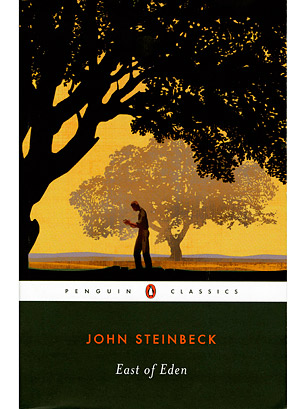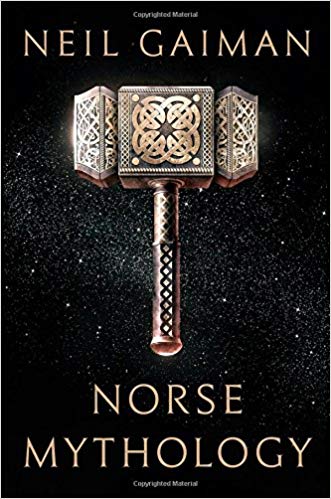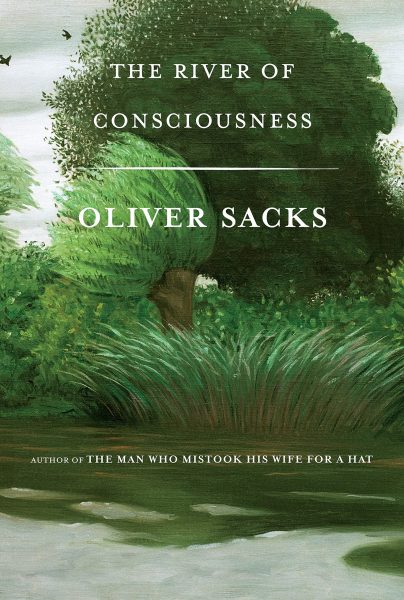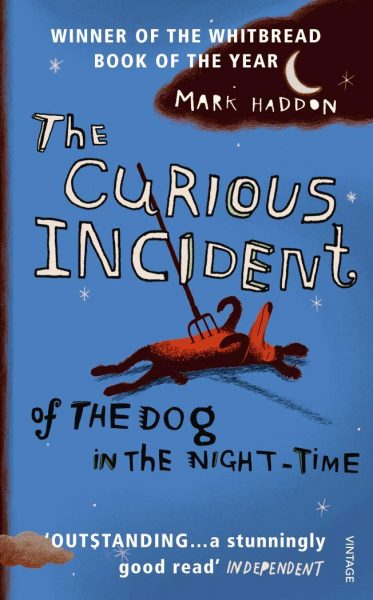Listen to this article

It’s autumn, Keats’ “season of mists and mellow fruitfulness,” and while we may be short on mist here in the State Library, I can share with you some of our fruits. I’m not talking about pumpkins, but the fruits of our Book Club Resource, of course! Here are five books from our collection as we ease into the cooler days – just for you.*

East of Eden, John Steinbeck – This sprawling and often brutal novel, set in the rich farmlands of California’s Salinas Valley, follows the intertwined destinies of two families–the Trasks and the Hamiltons–whose generations helplessly reenact the fall of Adam and Eve and the poisonous rivalry of Cain and Abel.
In my humble opinion, this is a once in a lifetime book. It has compelling and memorable characters, a sweeping, moving story — biblical, you might say — and is jeweled throughout with the author’s incomparable use of language. Yes, it’s sort of long, is guilty of a little bit of melodrama, but it’s very readable, chock-full of poetic wisdom, and a sure book club hit.
All great and precious things are lonely.

Norse Mythology, Neil Gaiman – Gaiman stays true to the myths in envisioning the major Norse pantheon: Odin, the highest of the high, wise, daring, and cunning; Thor, Odin’s son, incredibly strong yet not the wisest of gods; and Loki–son of a giant–blood brother to Odin and a trickster and unsurpassable manipulator.
What’s not to love? One of the foremost fantasy writers living today rewriting some of the oldest and greatest fantasy in western literature? Sign me up.
‘I’m not happy about any of this,’ said Thor. ‘I’m going to kill somebody soon, just to relieve the tension. You’ll see.’
The River of Consciousness, Oliver Sacks – A collection of essays that displays Oliver Sacks’ passionate engagement with the most compelling and seminal ideas of human endeavor: evolution, creativity, memory, time, consciousness, and experience. The River of Consciousness is one of two books Sacks was working on up to his death, and it reveals his ability to make unexpected connections, his sheer joy in knowledge, and his unceasing, timeless project to understand what makes us human.
I can’t vouch for this one personally, because I haven’t read it yet, but I can vouch for Dr. Sacks. I was genuinely saddened by his passing last year. He had a way with words that makes one wish to be better, to do better, to be kind, inquiring and appreciative of the wonders in our midst and the time we have on this planet.
can’t vouch for this one personally, because I haven’t read it yet, but I can vouch for Dr. Sacks. I was genuinely saddened by his passing last year. He had a way with words that makes one wish to be better, to do better, to be kind, inquiring and appreciative of the wonders in our midst and the time we have on this planet.
While most of the flowers in the garden had rich scents and colors, we also had two magnolia trees, with huge but pale and scentless flowers. The magnolia flowers, when ripe, would be crawling with tiny insects, little beetles. Magnolias, my mother explained, were among the most ancient of flowering plants and had appeared nearly a hundred million years ago, at a time when “modern” insects like bees had not yet evolved, so they had to rely on a more ancient insect, a beetle, for pollination. Bees and butterflies, flowers with colors and scents, were not preordained, waiting in the wings—and they might never have appeared. They would develop together, in infinitesimal stages, over millions of years. The idea of a world without bees or butterflies, without scent or color, affected me with a sense of awe.
The Curious Incident of the Dog in the Night-Time, Mark Haddon –  Christopher John Francis Boone knows all the countries of the world and their capitals and every prime number up to 7,057. He relates well to animals but has no understanding of human emotions. He cannot stand to be touched. And he hates the color yellow. The improbable story of Christopher’s quest as he investigates the suspicious death of a neighborhood dog makes for one of the most captivating, unusual, and widely heralded novels in recent years.
Christopher John Francis Boone knows all the countries of the world and their capitals and every prime number up to 7,057. He relates well to animals but has no understanding of human emotions. He cannot stand to be touched. And he hates the color yellow. The improbable story of Christopher’s quest as he investigates the suspicious death of a neighborhood dog makes for one of the most captivating, unusual, and widely heralded novels in recent years.
In The Curious Incident, Haddon gives us a glimpse into the psyche of an autistic teenage boy – and through his eyes we are given a unique view of human affairs which very few novels can compete with. Both moving and hilarious, this is sure to spark fascinating discussions in your book club.
I like dogs. You always know what a dog is thinking. It has four moods. Happy, sad, cross and concentrating. Also, dogs are faithful and they do not tell lies because they cannot talk.
Kafka on the Shore, Haruki Murakami – Kafka on the Shore displays one of the world’s great storytellers at the peak of his powers. Here we meet a teenage boy, Kafka Tamura, who is on the run, and Nakata, an aging simpleton who is drawn to Kafka for reasons that he cannot fathom.
John Updike called it a “real page-turner, as well as an insistently metaphysical mind-bender”. This is a two plot novel, with each plot taking up alternating chapters. The odd-numbered chapters tell the 15-year-old Kafka’s story. The even-numbered chapters tell Nakata’s story. Full of twists and turns, Murakami is on top form with this novel.
Not just beautiful, though–the stars are like the trees in the forest, alive and breathing. And they’re watching me.
Browse the Book Club Resource collection here. Have suggestions? Questions? Feedback? Would you like to donate books to our collection? Contact me at bookclub@coloradovirtuallibrary.org.
*The synopses given in italics are adapted from our catalog site descriptions and are not my own words.
- 19th Century Colorado Feminist Newspapers, The Antelope and The Queen Bee - December 1, 2021
- Land Acknowledgements - November 30, 2021
- Announcing our Collaborative Conversations Cohort! - November 17, 2021
